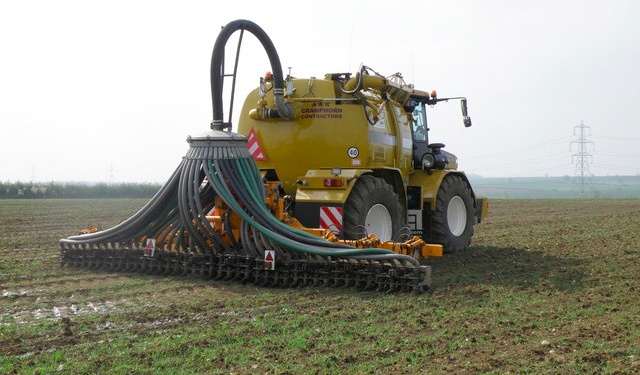
Farming unions in Wales have been involved in debates surrounding Nitrate Vulnerable Zones (NVZs) and whether the Welsh government plans to extend them to tackle pollution.
Nitrate Vulnerable Zones (NVZs) are areas designated as being at risk from agricultural nitrate pollution. They include about 58% of land in England and 3% in Wales.
Throughout the European Union, the Nitrates Directive aims to reduce water pollution from agricultural sources.
Areas where the concentrations of nitrate in water exceed, or are likely to exceed, the levels set in the Directive are designated as NVZs, and legally binding rules must be put in place to reduce nitrate loss from agricultural land.
The Farmers' Union of Wales has been intensely involved in the review of NVZ designations in Wales and remains opposed to any further increases.
Lengthy delays
The issue of NVZs along with bovine Tuberculosis were hotly debated in April when Pembrokshire farmers met their Welsh Assembly election candidates.
FUW Pembrokeshire County County Chairman David Nicholas said the Welsh Government are expected to increase the areas given over to NVZs and this includes a sizeable area in Pembrokeshire.
"The FUW reviewed the methodologies and conclusions with intense scrutiny and was able to present a case against designation in some cases. We will be meeting with the relevant bodies after the election in order to discuss the way forward."
Given the lengthy delay in releasing both the NVZ designation consultation, and the consultation relating to the Action Programme measures, it will be important to ensure that there remains sufficient time for the appeals process that will follow the confirmed designations.
Rebecca Voyle, FUW county executive officer for Pembrokeshire, told BBC Wales: "Various different dates have been given for a consultation to be issued and yet people are still waiting to see what's going to happen.
"We're in a big dairying area and lots of farms here would need to increase their slurry storage capacity. We're talking hundreds of thousands of pounds worth of work on some farms to get to the standards that they would need to have."
FUW senior policy officer Dr Hazel Wright said: “The FUW has devoted many days of work to the NVZ issue in Pembrokeshire and meetings are being held on an almost weekly basis.
"Given the severe repercussions of NVZ designation for farmers, the focus must be to minimise the area designated under the regulations while finding solutions for those within areas which are designated, including through best use of RDP funding.
"The threat of NVZ designation could not come at a worse time given the collapse in farmgate prices and there being little hope of an improvement in European and global dairy markets."
What are the benefits of tackling nitrate pollution?
Manures and slurries are a valuable resource to farmers as they provide available nitrogen to plants.
If this nitrogen is lost by leaching or surface runoff, this can be a loss for farmers as they may need to buy additional fertiliser.
Other benefits include helping to ensure industries that need high water quality remain viable, including recreation and tourism, fisheries and agriculture, horticulture and food processing.
Helping to maintain and improve the quality of drinking water and reduce the complexity and cost of water treatment.
And reducing the loss of nitrate and other nutrients into the water environment to reduce excessive plant growth or other associated risks
helping to protect habitats important for wildlife conservation and to prevent decreases in biodiversity.
